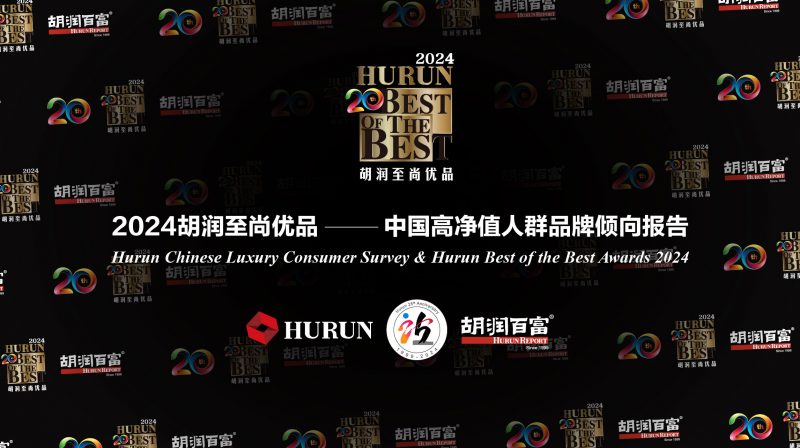
Released on 29 March 2024, the Hurun Chinese Luxury Consumer Survey 2024 includes data on a wide range of consumer preferences from 750 HNWI Chinese. The survey respondents were equally divided between male and female, with an average age of 36. Respondents’ average household net worth was RMB45 million, or US$6.22 million.
Click here to read the full original report (in Chinese) on the Hurun website. The following translation is a summary, focusing particularly on the parts of the report relating to travel.
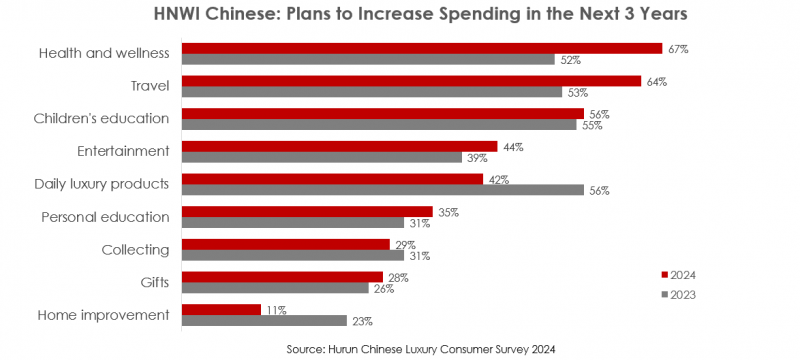
Nearly two-thirds of survey respondents said they planned to increase spending on travel in the next three years, making it the second most-popular category after health and wellness. Respondents choosing “travel” increased by 11 percentage points compared to 2023.
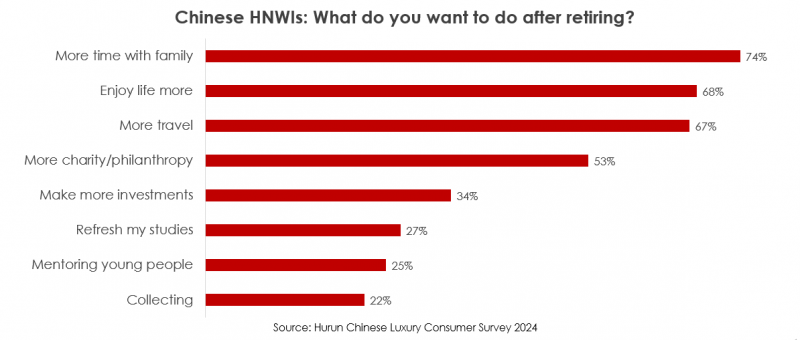
On average, survey respondents said they planned to retire at the age of 54. Two-thirds said they planned to spend their retirement traveling more.
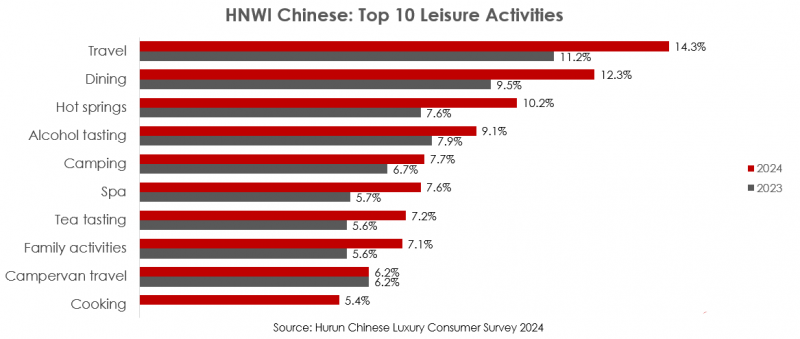
Travel remains the first-choice leisure activity for China’s HNWIs, increasing by 3.1 percentage points to 14.3%. This is followed by dining, hot springs, alcohol tasting, camping, and spa. The camping trend seems to be enduring, gaining one percentage point since last year’s survey, chosen by nearly four times as many survey respondents as in 2022, when it was only at 2%.
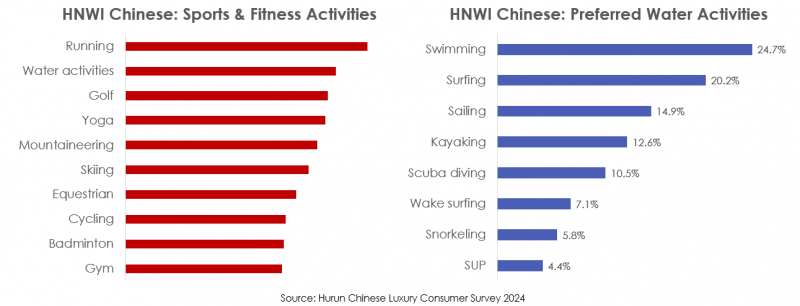
Water activities are one of the top choices for sports and fitness, among which swimming and surfing were most popular.
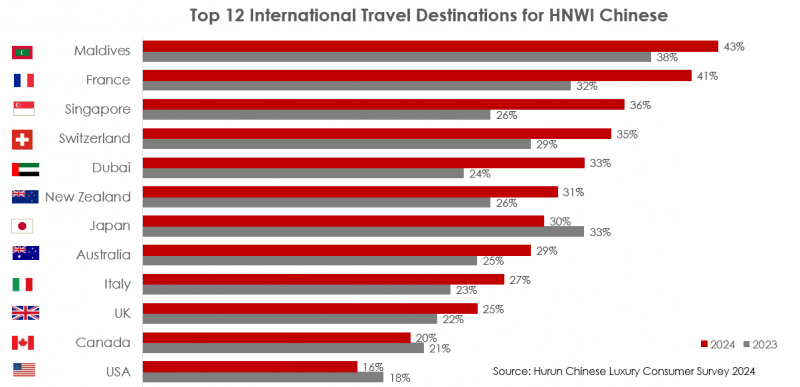
The Maldives is once again the top-choice international travel destination for wealthy Chinese, with France and Switzerland the most popular European destinations. Singapore and Dubai each moved up the rankings by three places from 2023, to 3rd and 5th, respectively. Japan dropped from the 2nd place ranking it enjoyed in both 2022 and 2023 down to 7th.
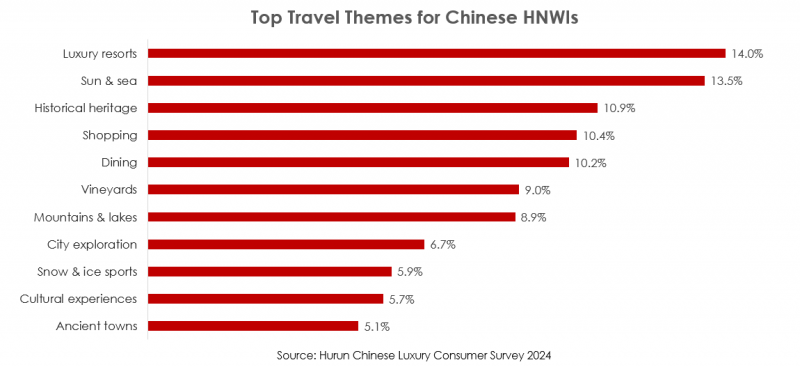
Luxury resorts were HNWIs’ first-choice for travel themes this year, and beach destinations were also particularly popular. Shopping and dining remained near the top of the list, as they have been in past years.
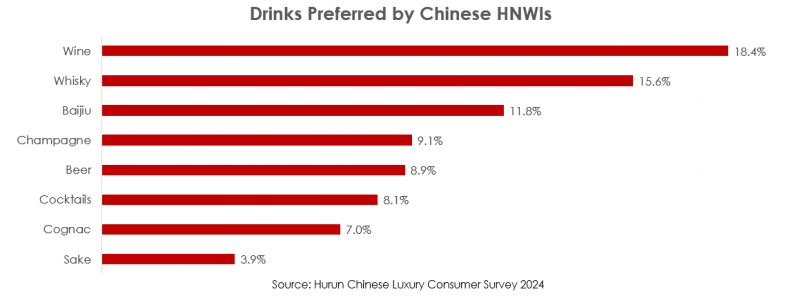
As in past years, wine and whisky continue to be the most popular types of alcoholic drink. This year’s survey did not include the same number of spirits as last year’s, with rum, vodka, gin, and tequila absent from the list, replaced with the more nebulous option, “cocktails”.
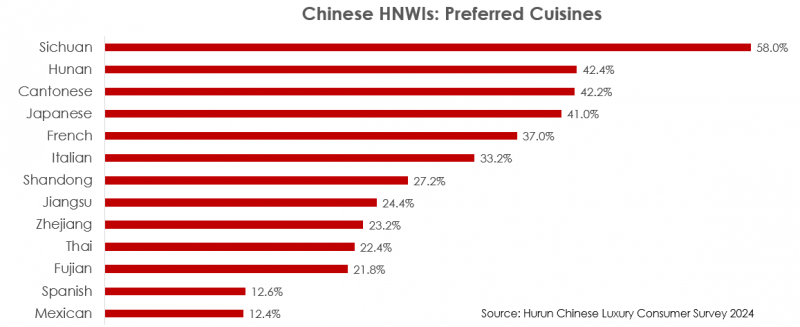
Chinese HNWIs enjoy spicy foods, with Sichuan by far the most popular cuisine, followed by Hunan cuisine. Japanese is still the most popular foreign cuisine, followed closely by French and Italian.
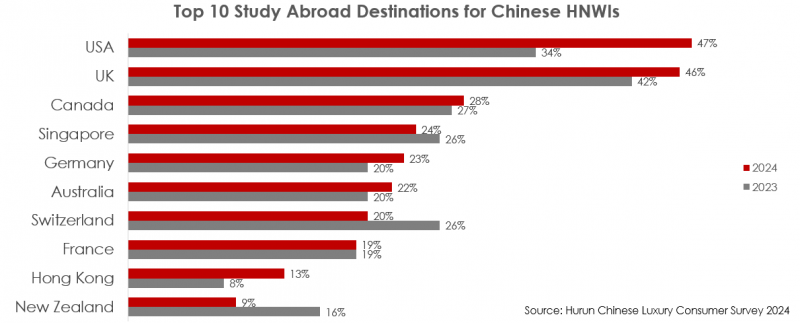
More than 80% of respondents had study abroad plans for their children, with 16 the average age at which they would be sent overseas for school. The US gained an impressive 13 percentage points since last year’s survey and is now back at the top of the list of study abroad destinations.
Additional findings
On average, survey respondents had 24 days of vacation every year, rising to 27 days for ultra HNWIs. 42% had at least 30 days a year of vacation. 79% planned to travel within China this year, and 71% planned to travel abroad.
Hainan was the no. 1 domestic destination for the 12th year running, chosen by 62% of respondents. Yunnan once again came in second place at 43%. Other top Chinese destinations include big cities like Hong Kong and Shanghai, as well as remote western regions Tibet and Xinjiang. Skiing hotspot Changbaishan was the 7th most popular destination, chosen by 26%.
69% of survey respondents use social media platforms Douyin and Xiaohongshu to find information about luxury products, up four percentage points since last year.
Outside of mainland China, Hong Kong and Singapore were the destinations in which Chinese HNWIs are most likely to invest in the next three years, chosen by 37% and 36% of respondents, respectively. The US came in third place at 29%, followed by “Dubai, Qatar, and Abu Dhabi” at 20% and the EU at 19%.
Suscríbase a nuestro boletín gratuito para mantenerse al tanto de las últimas noticias
NO COMPARTIMOS SU INFORMACIÓN CON TERCEROS. CONSULTE NUESTRA POLÍTICA DE PRIVACIDAD.
This website or its third party tools use cookies, which are necessary to its functioning and required to achieve the purposes illustrated in the cookie policy. If you want to know more or withdraw your consent to all or some of the cookies, please refer to the cookie policy. By closing this banner, scrolling this page, clicking a link or continuing to browse otherwise, you agree to the use of cookies.